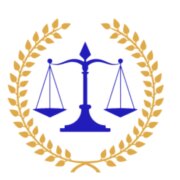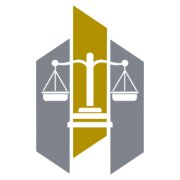Best Arrests & Searches Lawyers in South Africa
Share your needs with us, get contacted by law firms.
Free. Takes 2 min.
Or refine your search by selecting a city:
List of the best lawyers in South Africa
About Arrests & Searches Law in South Africa
In South Africa, the laws governing arrests and searches are rooted in the Constitution and the Criminal Procedure Act. The Constitution guarantees the rights to freedom and security of the person, which includes protection against arbitrary arrest and detention. The Criminal Procedure Act establishes the legal framework for law enforcement in conducting arrests and searches. These laws aim to balance the enforcement of law and order while safeguarding individual rights against excessive or unlawful state action.
Why You May Need a Lawyer
There are several situations where legal assistance may be crucial when dealing with arrests and searches:
- If you believe your arrest was unlawful or you were subjected to an unreasonable search, a lawyer can help protect your rights.
- If you face charges following an arrest or search, legal representation is essential to build a strong defense.
- If you need to navigate the legal system to understand your rights and obligations, a lawyer can provide valuable guidance.
- If you are a victim of police misconduct or abuse, legal counsel can assist in seeking justice and compensation.
Local Laws Overview
Some key legal aspects relevant to arrests and searches in South Africa include:
- Arrest Procedures: A person can be arrested with or without a warrant, provided there's reasonable suspicion to believe they are involved in a criminal offense.
- Search Warrants: Searches typically require a warrant issued by a magistrate or judge. However, certain exceptions allow warrantless searches, such as exigent circumstances or consent.
- Rights Upon Arrest: The arrested individual has the right to remain silent, be informed of the charges, and have access to legal representation promptly.
- Seizure of Property: When conducting a search, law enforcement may seize items relevant to the investigation, but they must adhere to legal standards to prevent abuse.
Frequently Asked Questions
What should I do if I am arrested?
Remain calm, exercise your right to remain silent, and request legal representation as soon as possible.
Can the police search my home without a warrant?
Generally, a warrant is required to search your home unless there are urgent circumstances or you give consent.
What are my rights during a search?
You have the right to ask for a search warrant, and the search should be conducted respectfully and within legal limits.
How long can I be detained without being charged?
The South African law typically allows detention for up to 48 hours before charges must be filed or you should be released.
Can I film the police during an arrest or search?
Yes, as long as you do not interfere with their duties, you have the right to record public interactions with the police.
What can I do if I believe an arrest was unlawful?
Seek legal counsel to explore options for challenging the arrest or filing a complaint against the police.
Can evidence be dismissed if obtained unlawfully?
Yes, evidence obtained through unlawful searches may be excluded from court proceedings, depending on the circumstances.
Do the police have to inform me of my rights upon arrest?
Yes, the police are obligated to inform you of your rights during an arrest, which is commonly referred to as the 'Miranda' rights.
What is an interim protection order?
In urgent cases, courts can issue interim orders to protect individuals from harm while a more thorough investigation is conducted.
Can I refuse a search if the police do not have a warrant?
Yes, you can refuse consent to a search unless there is a legal exception justifying a warrantless search.
Additional Resources
Here are a few resources that may assist those seeking legal advice concerning arrests and searches:
- Legal Aid South Africa: Offers legal assistance to those who cannot afford private legal services.
- South African Police Service (SAPS): Provides guidelines and information on police procedures and rights.
- Independent Police Investigative Directorate (IPID): Handles complaints against the police, including misconduct during arrests and searches.
- Department of Justice and Constitutional Development: Offers information on legal rights and procedures.
Next Steps
If you need legal assistance in the area of arrests and searches, consider taking the following steps:
- Contact a local lawyer specializing in criminal law to discuss your situation.
- Gather and preserve any evidence or records related to your case, such as police reports or eyewitness accounts.
- File/record any complaints with the appropriate governmental body, such as the IPID if police misconduct is involved.
- Seek guidance from legal aid organizations if you are unable to afford private legal counsel.
Understanding your rights and legal options at each stage is vital for navigating situations involving arrests and searches. Employing professional legal help can ensure your rights are protected and that any potential injustices are addressed appropriately.
Lawzana helps you find the best lawyers and law firms in South Africa through a curated and pre-screened list of qualified legal professionals. Our platform offers rankings and detailed profiles of attorneys and law firms, allowing you to compare based on practice areas, including Arrests & Searches, experience, and client feedback.
Each profile includes a description of the firm's areas of practice, client reviews, team members and partners, year of establishment, spoken languages, office locations, contact information, social media presence, and any published articles or resources. Most firms on our platform speak English and are experienced in both local and international legal matters.
Get a quote from top-rated law firms in South Africa — quickly, securely, and without unnecessary hassle.
Disclaimer:
The information provided on this page is for general informational purposes only and does not constitute legal advice. While we strive to ensure the accuracy and relevance of the content, legal information may change over time, and interpretations of the law can vary. You should always consult with a qualified legal professional for advice specific to your situation.
We disclaim all liability for actions taken or not taken based on the content of this page. If you believe any information is incorrect or outdated, please contact us, and we will review and update it where appropriate.
Browse arrests & searches law firms by city in South Africa
Refine your search by selecting a city.
















